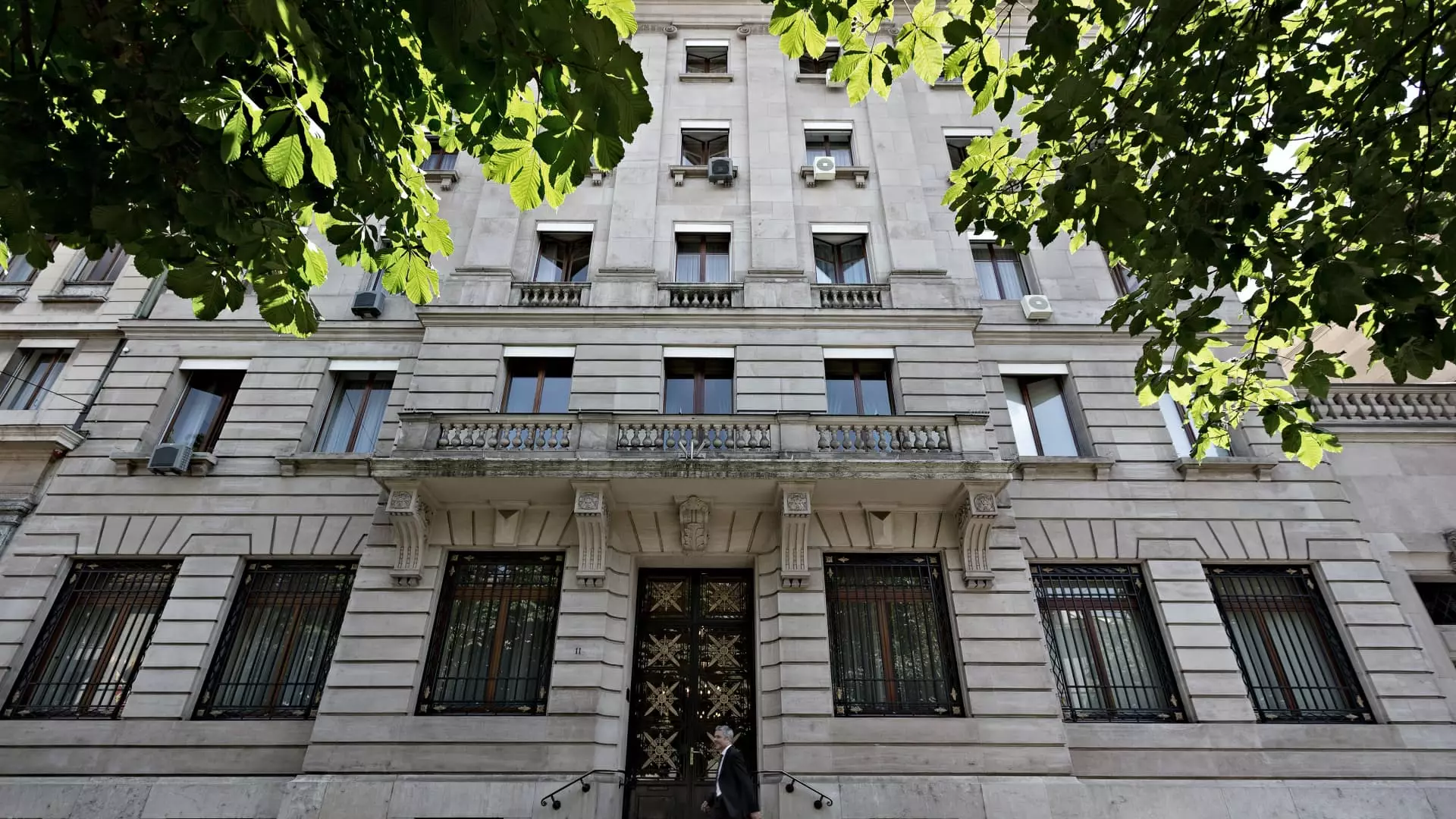In a significant legal development, Lombard Odier, one of Switzerland’s oldest private banking institutions, has faced serious allegations from Swiss prosecutors, resulting in an indictment on charges of “aggravated money laundering.” Announced by the Office of the Attorney General of Switzerland (OAG), this case involves not only the bank itself but also a former employee. The gravity of the allegations stems from the involvement of Gulnara Karimova, the daughter of the late Uzbek president Islam Karimov, who is accused of orchestrating a criminal enterprise benefiting from money laundering activities between 2005 and 2012.
The narrative began taking shape when the OAG suggested that Lombard Odier played a pivotal role in aiding the concealment of illicit funds derived from Karimova’s operations. Karimova’s notoriety, both as a politically influential figure and as a convicted felon, adds a layer of complexity to this case, raising questions about the integrity of financial systems that should safeguard against such malfeasance.
The OAG has alleged that banking transactions conducted through Lombard Odier provided a channel for Karimova’s illegally acquired wealth, essentially allowing criminal activities to surface in the financial mainstream. Investigations have revealed that Lombard Odier’s banking practices may have facilitated the flow of funds tied to Karimova’s organized crime syndicate, referenced in documents as “The Office.” This casts a long shadow over the bank’s historic reputation, dating back to 1796, as a trusted sanctuary for wealth.
Since 2016, Lombard Odier has been under scrutiny, emphasizing the potential failure of internal compliance mechanisms and risk management strategies designed to prevent money laundering. While the bank publicly denies the allegations, asserting that they are unfounded and meritless, the legal ramifications of these claims could severely affect the institution’s financial standing and operational ethos.
In an official statement, Lombard Odier expressed its intent to vigorously contest the charges, highlighting the proactive measures they took by reporting suspicions directly to Swiss authorities. This defense line appears to present the bank in a more favorable light, seeking to convey a commitment to regulatory compliance. However, the irony is not lost; the very act of reporting suspicious activity may be viewed as an acknowledgment of potential malpractice lurking within its walls. How the narrative unfolds in the Federal Criminal Court will play a decisive role in shaping not only Lombard Odier’s fate but the broader banking industry’s approach to compliance and ethical standards.
This case dovetails into a wider discourse on the banking sector’s susceptibility to criminal enterprise activities, particularly in jurisdictions known for their financial secrecy. It calls for an immediate reassessment of banking protocols, as well as scrutiny of the regulatory frameworks governing financial institutions. Lombard Odier’s predicament serves as a cautionary tale, reminding banks globally of their crucial role in upholding the integrity of the financial system.
The outcome of Lombard Odier’s legal challenges will be closely monitored, as it holds implications not just for the bank itself, but for the entire financial landscape in Switzerland and beyond. As society embraces increased accountability and scrutiny, banks must navigate the delicate balance between client confidentiality and responsible oversight with renewed diligence.

